The Top Enterprise Ecommerce Platforms (and Criteria to Pick Yours)
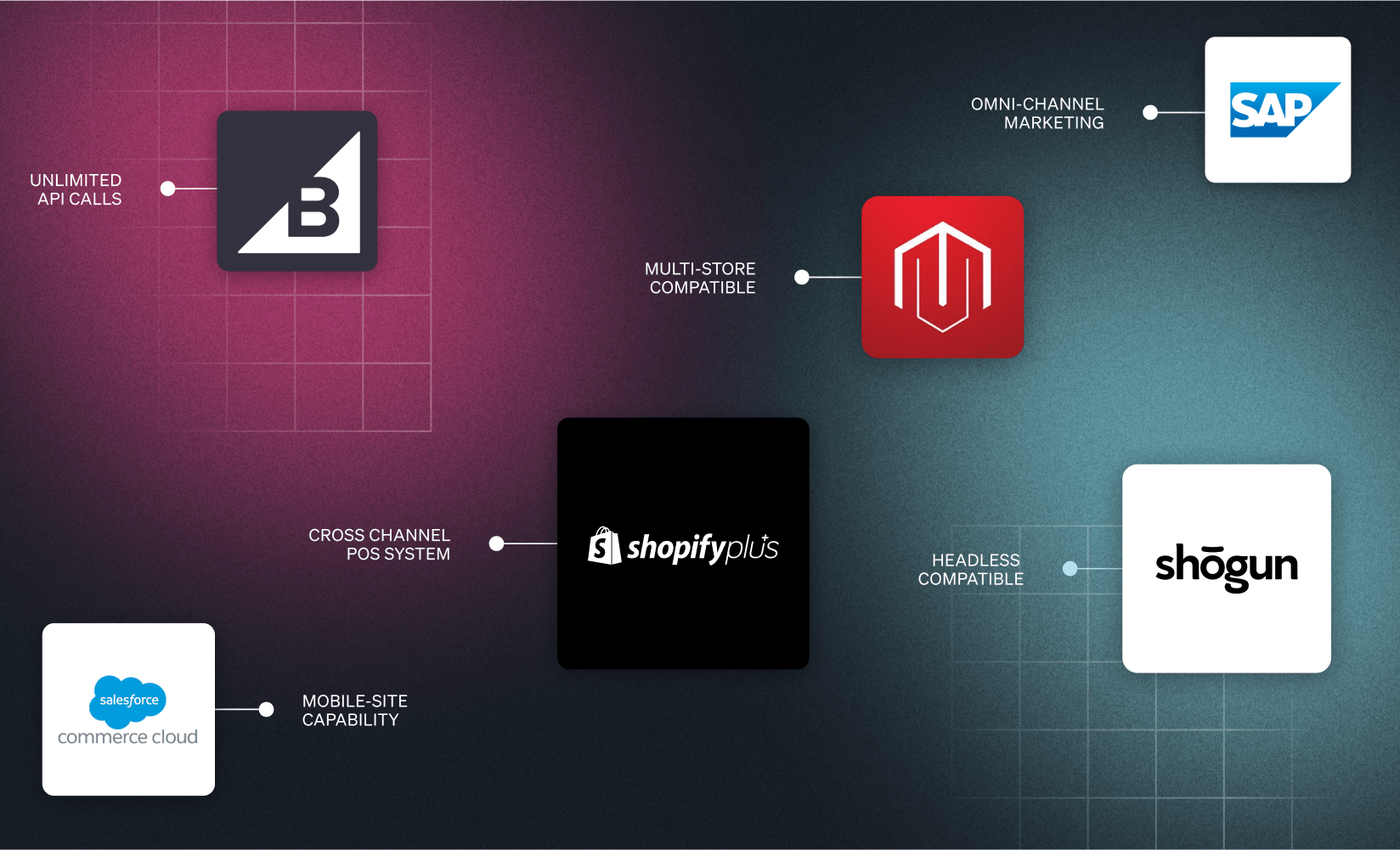
“Standard” or traditional ecommerce platforms (like Shopify and BigCommerce Essentials) are popular for a reason; they’re excellent for kickstarting new, budding businesses.But when your online store reaches a certain maturity and you’re facing limitations—it’s often time to explore ecommerce solutions that can sustain growth at scale.
Enterprise ecommerce solutions can help larger organizations deliver complex site design, accommodate traffic surges, and provide the security or compliance needed to keep growing.
If you suspect you need a platform suited for enterprise commerce needs, we’ve got you.
Here we’ll cover which types of businesses constitute the ‘enterprise’, what you can expect from platforms intended for scale, and the criteria for evaluation.
Feel free to jump to the info most helpful to you:
- The definition of enterprise ecommerce
- What enterprise ecommerce platforms are (and why they’re great)
- The benefits of enterprise ecommerce solutions
- Critical features for evaluating an enterprise ecommerce platform
- The top enterprise ecommerce platforms
Let’s jump right in with a definition:
What is enterprise ecommerce?
Enterprise ecommerce encompasses businesses offering various products and services with an annual gross merchandise value (GMV) of multiple millions and, in some cases, billions. Many enterprise ecommerce businesses are large organizations that have expanded into global markets. They typically operate in several locations, and may manufacture and distribute goods.
For example, Fortune 500 chart-topper and international ecommerce giant, Amazon, is expected to yield $631.6 billion in GMV by 2025.
However, other successful enterprises, like Europe’s most popular online marketplace, Allegro, yielded roughly $2 million in GMV in the latter half of 2021.
Companies doing $1-100 million in GMV annually fall into the enterprise category, but also, these organizations are complex, and their business operations have scaled such that procured software must be robust and be adopted by many diverse business groups/stakeholders.
Evaluation criteria for suitable solutions includes hosting (cloud or installed/on-premise), as well as scalability, flexibility, and security.
What is an enterprise ecommerce platform?
GMV aside, one of the biggest indicators of enterprise ecommerce brands is reaching a certain maturity. Put differently, these brands understand that the early solutions that initially brought success and may be suitable for one department’s operations are unlikely to facilitate the next growth phase.
Brands at this point (or even slightly before potential plateau) turn to enterprise ecommerce platforms. Enterprise ecommerce platforms are software with the tools, features, and capabilities needed to propel a larger business with complex needs forward.
They typically have features that support greater control over customer interactions at scale, like advanced storefront design abilities, customizable checkout, improved site performance, multi-store functionality, and much more. The robust software is also much more geared to meeting several groups’ needs within the organization.
Aside from a base commerce platform, often a combination of enterprise ecommerce solution(s) will often help your business scale content management, product data management, supply chain management, enterprise asset management, enterprise resource planning, global expansion, customer relationship management,, inventory management, elevated ecommerce experiences, and much more.
What are the benefits of migrating to enterprise ecommerce software?
Migrating your site—or making any significant change to your ecommerce experience—via enterprise commerce software is an all-hands-on-deck situation.
So, why do brands implement an enterprise ecommerce platform? Especially if it may involve replatforming in some cases? Let’s look at a few reasons enterprise brands take the next step.
1. Build and deliver elevated site content
For enterprise brands looking to optimize and scale an online shopping experience (vastly improving site speed, performance, and adding high-converting rich merchandising), upgrading to an enterprise ecommerce platform means finally making room for that vision and expansion.
Digital transformation becomes easier via powerful software that can handle robust ecommerce features, integrations, spikes in traffic, rich visuals, and more—components that aren’t easy to achieve with standard ecommerce platforms out-of-the-box.
#cta-visual-fe#<cta-title>Elevate your shopping experience with headless commerce<cta-title>Shogun Frontend offers a radically different approach to headless commerce with an all-in-one Frontend Platform. Learn more
2. Robust security and compliance, built-in
Customers expect enterprise brands are secure—from transactions and payments to handling customer data.
However, with enterprise businesses experiencing 130 security breaches per year, per organization, on average, and the annual cost of cyber security increasing by 22.7% in 2021, brands need to invest in and ensure secure systems.
Changing to an enterprise-grade platform can help your business avoid hefty fines associated with security breaches or noncompliance. In fact, the average cost of a data breach in 2022 is roughly $4.34 million—a 2.6% increase from 2021.
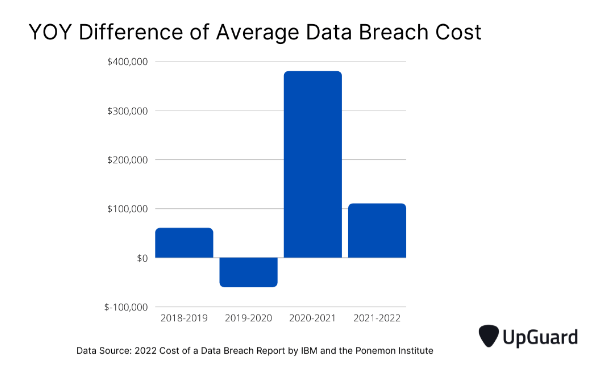
Leading enterprise software is built with top-notch uptime, multiple data centers to account for potential server failure, and are certified secure ecommerce platforms to keep your business reliable.
Criteria or key functionality to evaluate enterprise ecommerce solutions
So what exactly should an enterprise ecommerce platform help you accomplish? There are a few baseline things you’ll typically be looking for, including:
1. Facilitates headless commerce (or is headless-enabled)
Today, more enterprise-level brands are decoupling their front and backend platforms for flexibility, turning to headless commerce platforms to build engaging shopping experiences without creative or performance tradeoffs.
Decoupling your tech this way (wherein the frontend layer is entirely separate and independent of backend functions) is an investment in future-proofing your tech stack. And it helps you consistently deliver the incredible experiences shoppers have come to expect.
If you wish to adopt headless commerce for flexibility, it’s important that your backend ecommerce platform is—at the very least—headless-enabled. Or, allows for this ability to swap on a new “head” or frontend layer. This way, you can manage the customer-facing presentation of your site entirely separately, should you wish to.
#cta-paragraph-fe#Learn more about the different ways to go headless: https://getshogun.com/enterprise/composable-commerce/
Overall, ensuring that the enterprise ecommerce solution you choose allows for an interchangeable or flexible frontend layer—even if it’s not on the immediate horizon for your business now—can make headless implementation easier in the future should you choose this path.
2. Integrates with core ecommerce tools and apps
As your business grows, you’ll likely need to add on or integrate various apps or plugins to deliver the ecommerce experience you envision.
It’s important to choose an enterprise ecommerce platform you know can accommodate these core business integrations in a way that doesn’t become too large an undertaking for your internal teams. It’ll be important to understand and factor in the total cost of ownership, as well as any development time you’ll need to account for with integrations requiring a heavier lift.
If there are specialized integrations you want to include on your site, raise these in discovery conversations with each platform you consider. Understand the parameters of what the platform can do or if any ad-hoc workarounds will be needed to accommodate the tool or app you want.
3. Secure (and has level 1 PCI compliance)
As we covered earlier, it’s critical for enterprises to adhere to strong cybersecurity practices and compliance.
PCI DSS, or payment card industry data security standards, is a set of requirements determined by global card networks to keep card and cardholder data secure.
Most enterprise ecommerce solutions provide PCI DSS level 1 compliance—the highest level of merchant compliance with data security and payments—but not all.
The platform you choose will determine if compliance is managed for you or if you’ll be tasked with maintaining it yourself. Consider what you can realistically handle, and investigate your shortlist accordingly.
4. Enables proper hosting for your business needs
When researching ecommerce solutions for your enterprise, pay special attention to the platform’s hosting capabilities. Your business needs (like conversion volume, traffic, dev resources, etc.) will influence the type of host you’ll need.
Here are 3 commonly available hosting options for enterprise-level businesses.
SaaS hosting
With SaaS (software-as-a-service) hosting, brands “rent” hosting to handle several essential functions like data, runtime, servers, storage, and more.
Similar to choosing SaaS to power your ecommerce site, no downloading or maintenance is required to manage this kind of host. One less thing on your plate!
Cloud-based hosting
There are two main types of cloud-based hosting:
- Infrastructure-as-a-service: This cloud-based hosting uses a pay-as-you-go model, meaning you only pay for the amount of hosting space you need.
- Platform-as-a-service: This cloud-based hosting requires teams to log into a separate platform to manage. Developers typically prefer this kind of hosting because of the level of control it offers.
Self-hosting (on-premise with physical servers)
Self-hosting means your business hosts your software through physical servers in a data center or specified room.
This hosting option offers total flexibility for enterprises. Self-hosting is typically open-source, meaning your business can change any part of the source code, giving you ultimate control over your site and how it functions.
But, as the saying goes, “With great power comes great responsibility.” If you choose to self-host on-premise, you’ll assume full server control and need to maintain hardware malfunctions, software glitches, or anything else that arises.
If this is a route you’re considering, make sure you have the team, resources, and budget in place.
When selecting your enterprise ecommerce platform, consider what hosting capabilities it offers and what you need to be successful.
5. Empowers your non-technical team to make site-wide changes
Even though enterprise-level brands often have access to more resources (be it budget, employees, etc.), enabling more team members to make changes to the ecommerce experience via the site means improved efficiency across your organization.
Choosing an enterprise ecommerce platform that allows non-technical team members to update the site—with tools like a visual editor or powerful page builder—can reduce bottlenecks and improve workflows.
6. Offers white-glove support, implementation, and reliable uptime
Choosing an ecommerce solution with a support team that is reliable, troubleshoots issues, and answers questions quickly can be the difference between a stressful, late-hours situation and a minor hiccup.
When evaluating enterprise ecommerce solutions, identify the technical acumen of the support team, availability should something go wrong, dedicated success managers, and your options for white glove support (e.g., is there a phone number to call for bigger issues? Or is everything handled over email or chat?).
Also, as your customer base continues to grow, so will your site traffic. Make sure your site can withstand the uptick by choosing an ecommerce platform with dependable uptime.
The majority of enterprise software providers offer service level agreements (SLAs) specifying a minimum percentage of uptime in a period. For example, 95% of uptime might sound like a lot but it actually equates to about 18 days of downtime annually—or 18 days per year your customers can’t convert on your site 👀
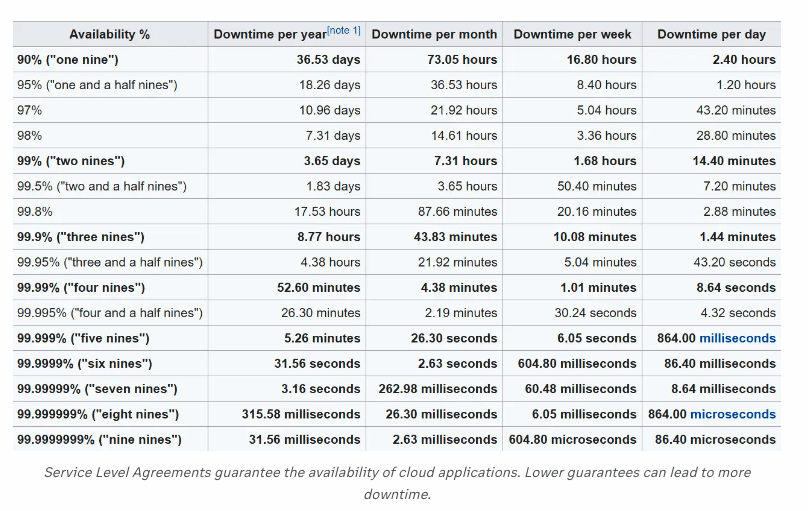
Be sure to choose an enterprise ecommerce platform that can handle your site traffic as it stands now and as you keep growing.
The top enterprise ecommerce platforms
Without further ado, here are the ecommerce platforms most suited to enterprise businesses at this time based on their robust features:
BigCommerce Enterprise
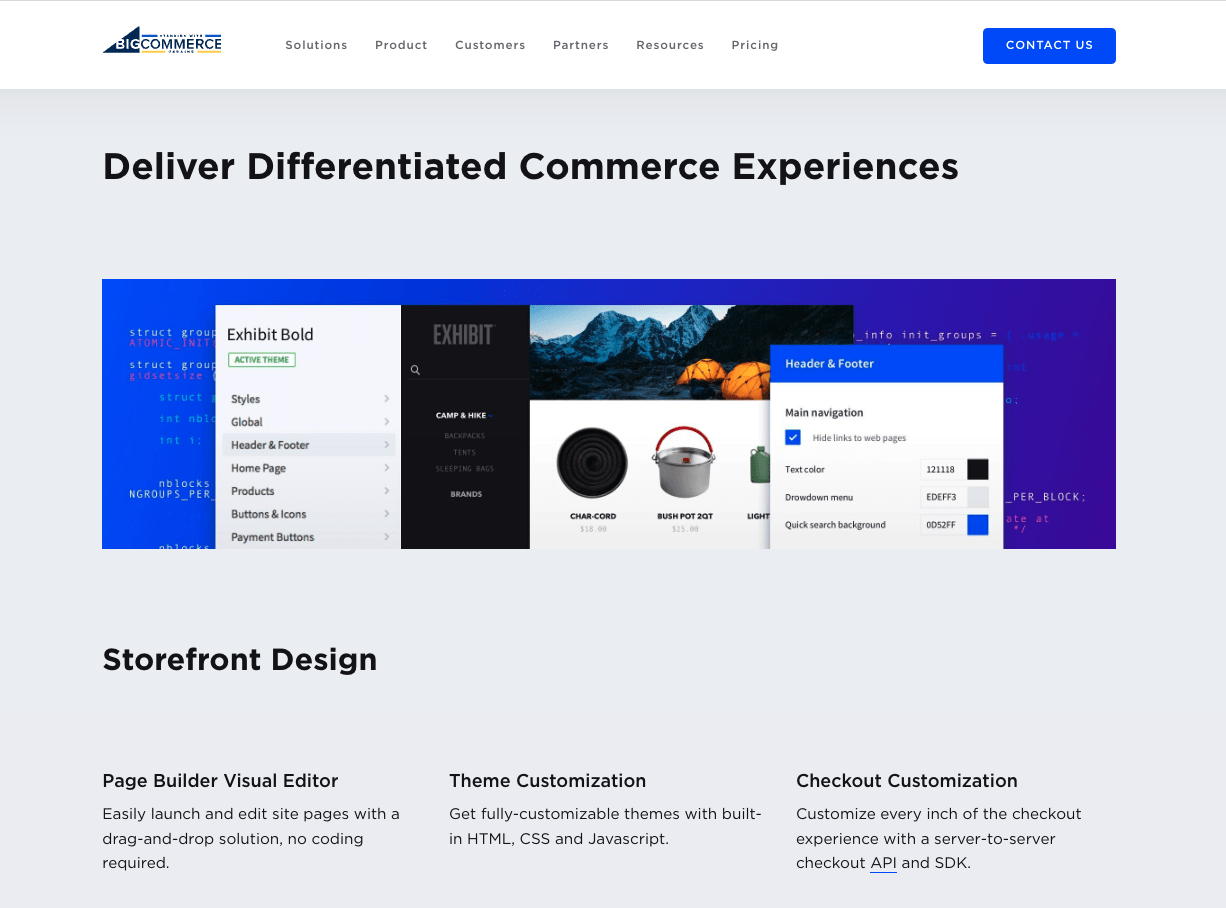
BigCommerce is a leading open SaaS ecommerce platform that combines SaaS and API-enabled openness to help brands customize their online shopping experiences and maintain unparalleled site performance.
Key features:
- Multi-currency (display, transact, and settle)
- Multi-store compatibility/capability
- Unlimited API calls
- Fully customizable checkout
- 24/7 technical support
- Extended validation SSL available
- Sitewide HTTPS and dedicated SSL
- Headless compatible
Pricing: Custom for enterprise
Example: Black Diamond
Outdoor sporting goods brand, Black Diamond, went headless with BigCommerce. This stunning site is full of (super cool) branded imagery, easy site navigation, and sleek product carousels.


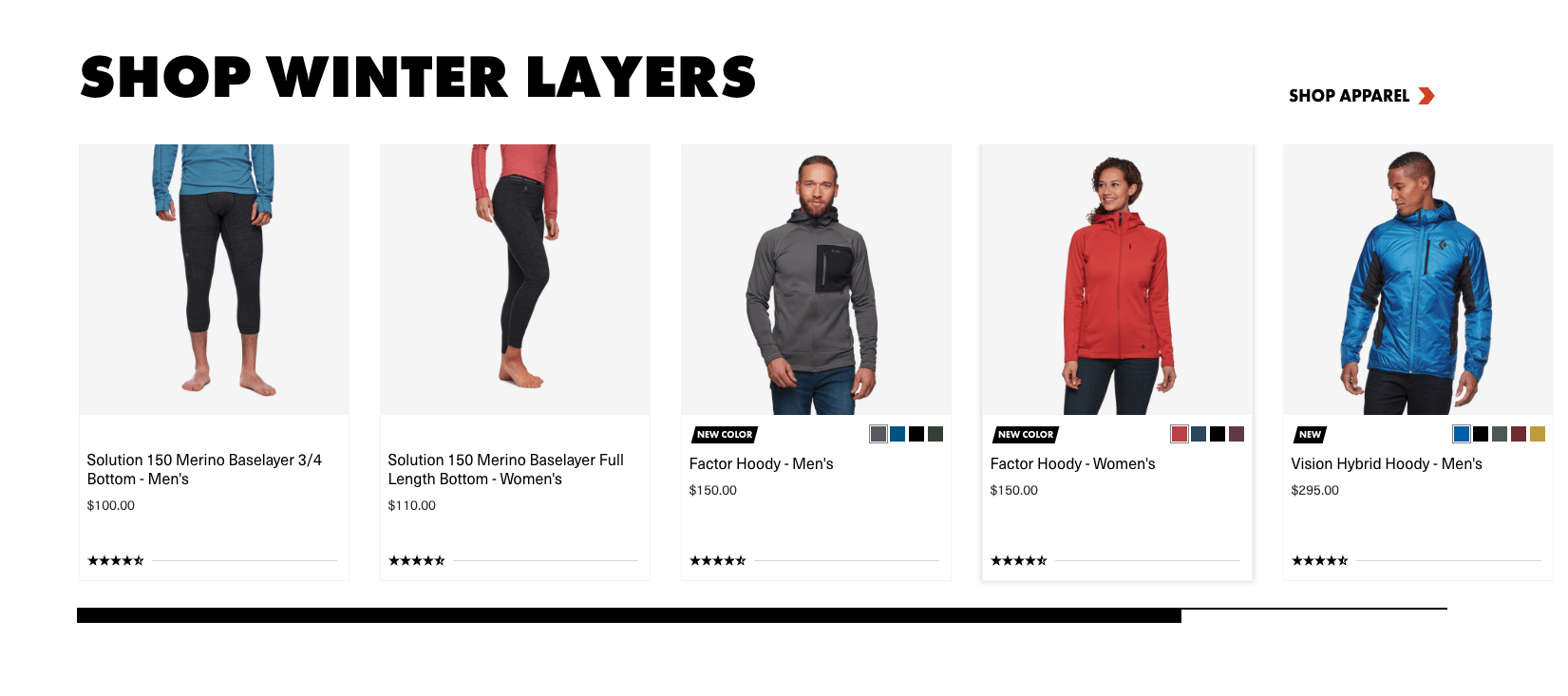
Ready to take your BigCommerce store headless? Check out our guide: https://getshogun.com/enterprise/bigcommerce-headless/
#cta-visual-fe#<cta-title>Scale your business l with Shogun Frontend and BigCommerce<cta-title>See how to take your BigCommerce site headless with Shogun Frontend. Learn more
Salesforce Commerce Cloud
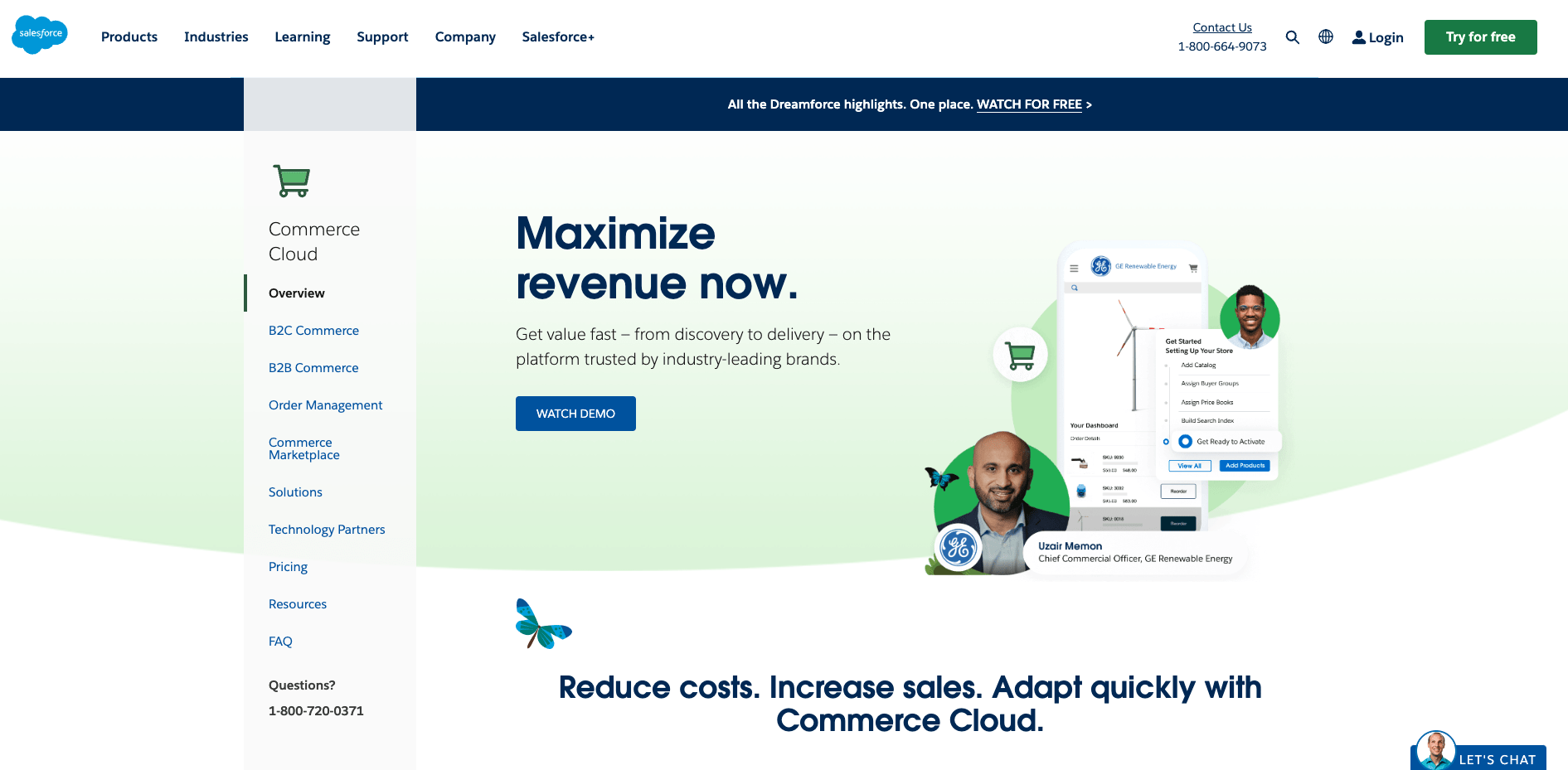
Salesforce Commerce Cloud offers an integrated approach for brands looking to improve their omnichannel strategy.
Enterprises can easily unify their physical and digital channels into one with AI tools, simplified ordering and payments, and more.
Key features:
- AI-powered personalization tools
- Global compliance
- Multi-site scalability
- Mobile-first capabilities
- Headless compatible
Pricing:
- B2C Commerce (Starter): 1% GMV
- B2C Commerce (Growth): 2% GMV
- B2C Commerce (Plus): 3% GMV
Example: Sonos
Wireless speaker brand Sonos chose Salesforce Commerce Cloud to build their engaging, balanced ecommerce site. Sonos.com is full of high-quality visuals, CSS effects, and bold text that convey the brand’s quality.

Adobe Commerce
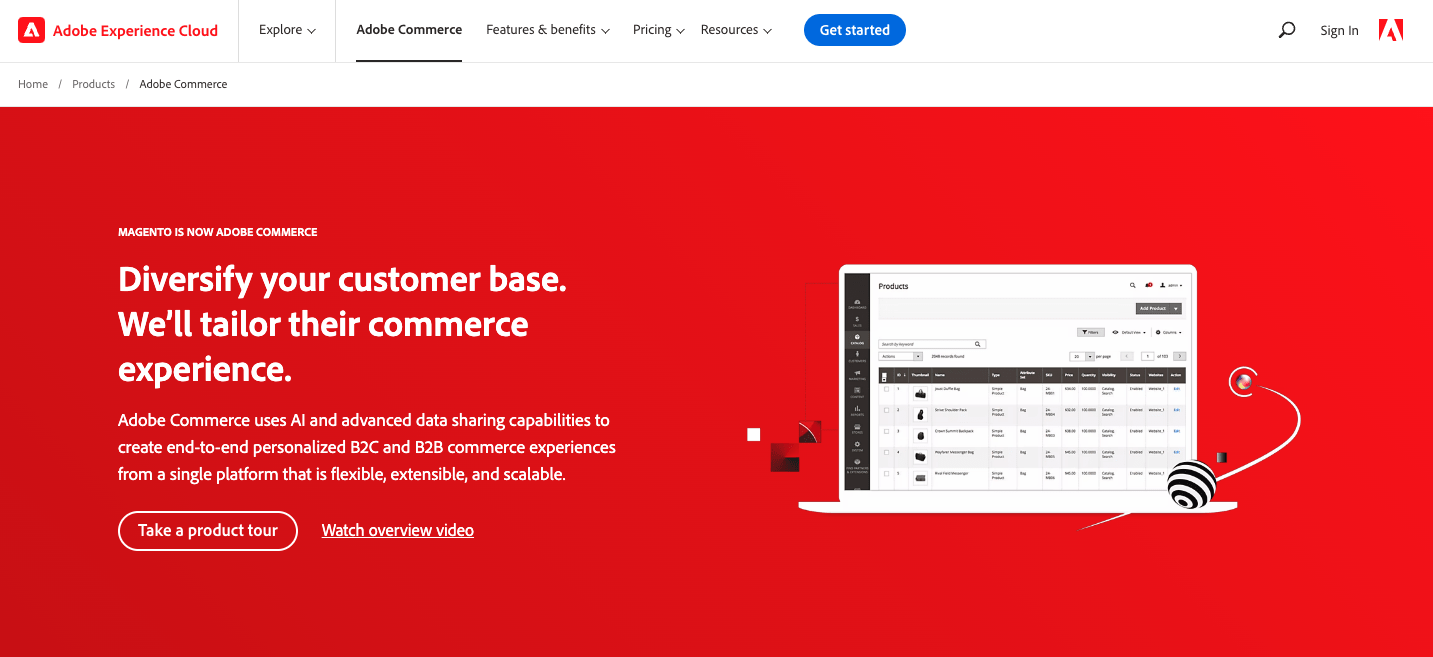
Formerly known as Magento, Adobe Commerce is a leading digital ecommerce platform built for enterprises with scalable, open-source solutions.
Key features:
- Drag-and-drop visual merchandiser
- Flexible inventory and fulfillment management (unifying your omnichannel experience)
- Multi-store compatible
- Headless compatible
Pricing: Custom for enterprise
Example: Rossignol
Rossignol chose Adobe Commerce to connect its sub-brands with one ecommerce experience. The site screams “adventure” with bold visuals, trending product carousels, and an engaging user-generated content grid.
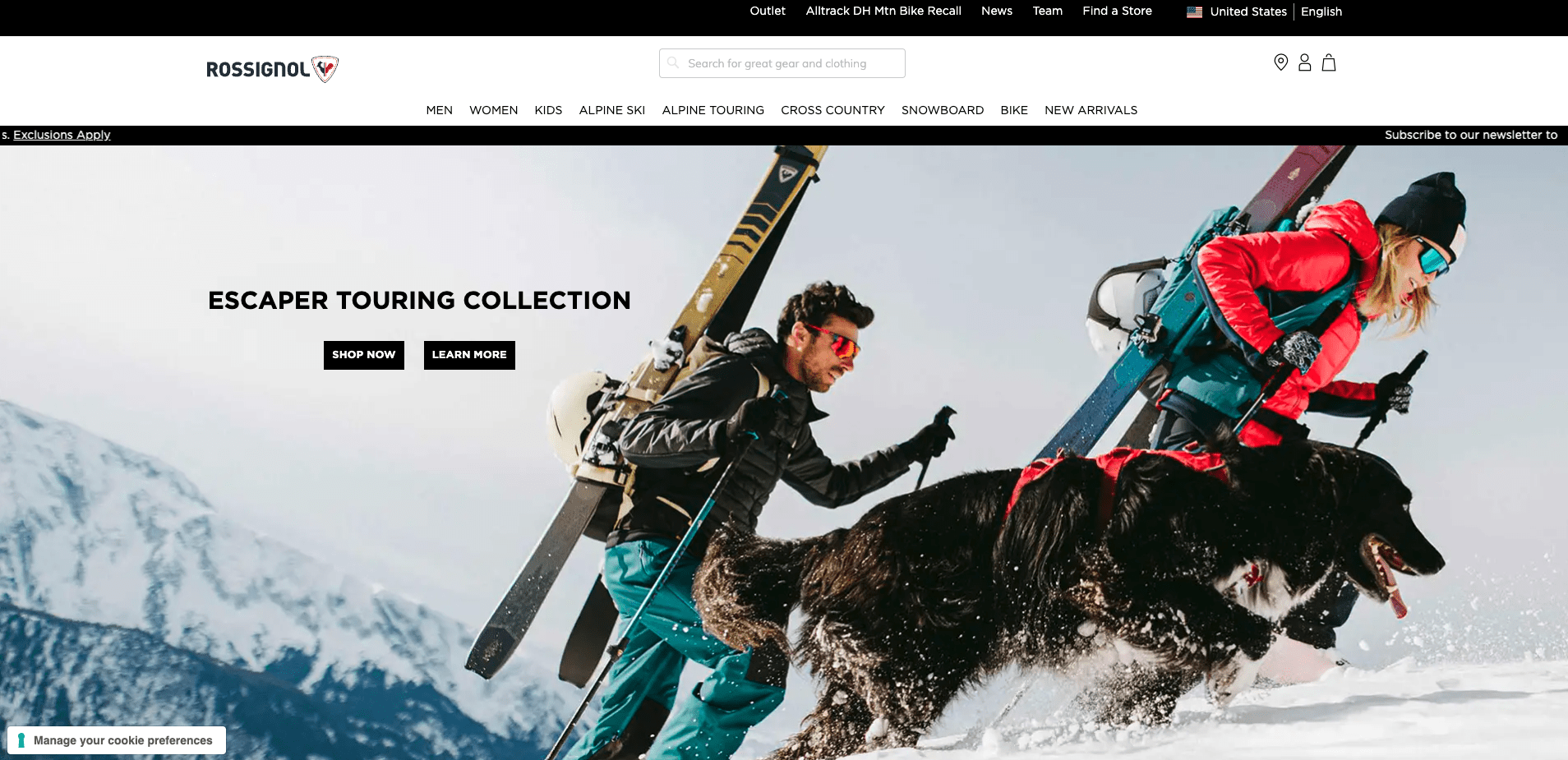
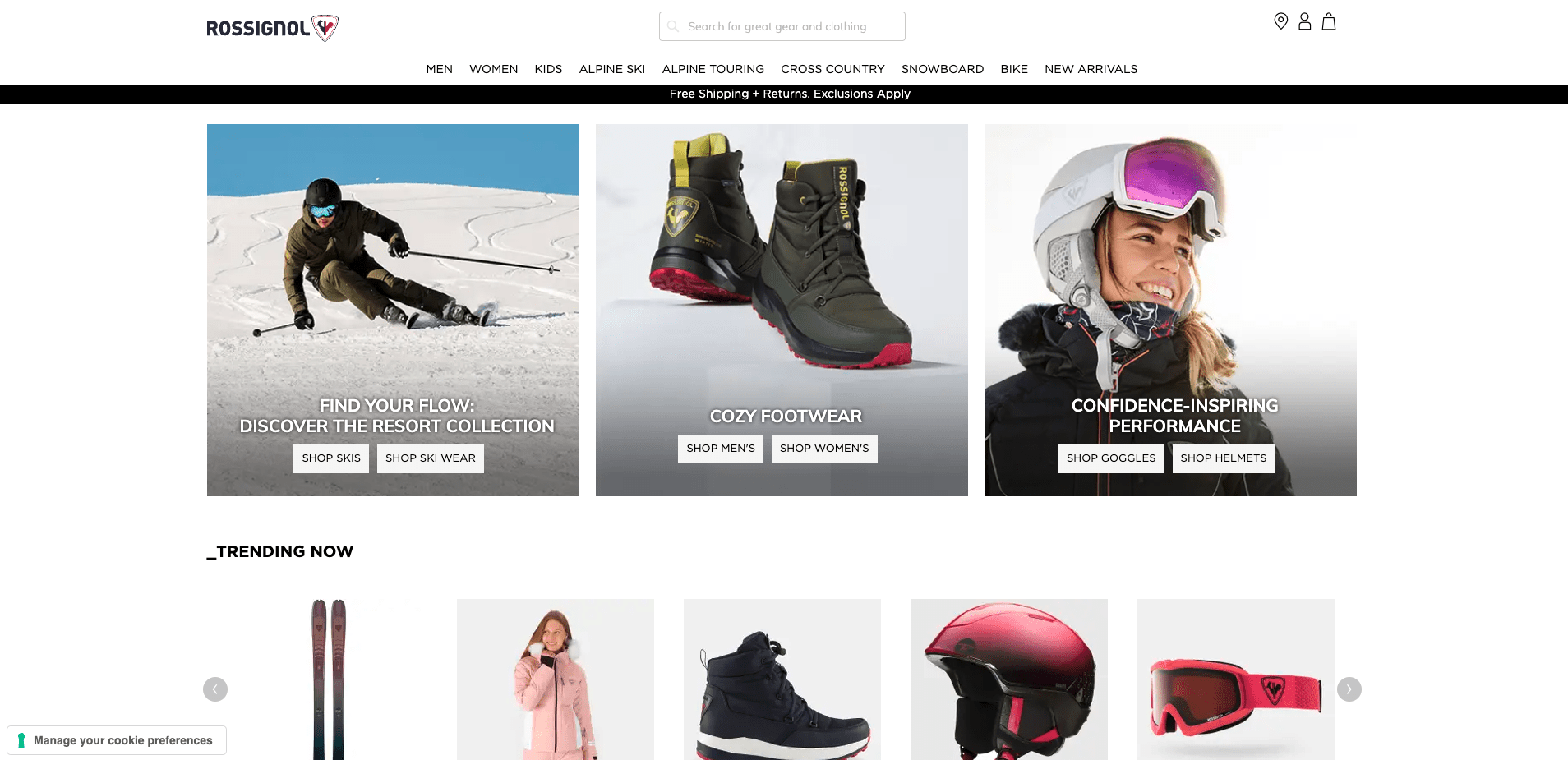

Shopify Plus
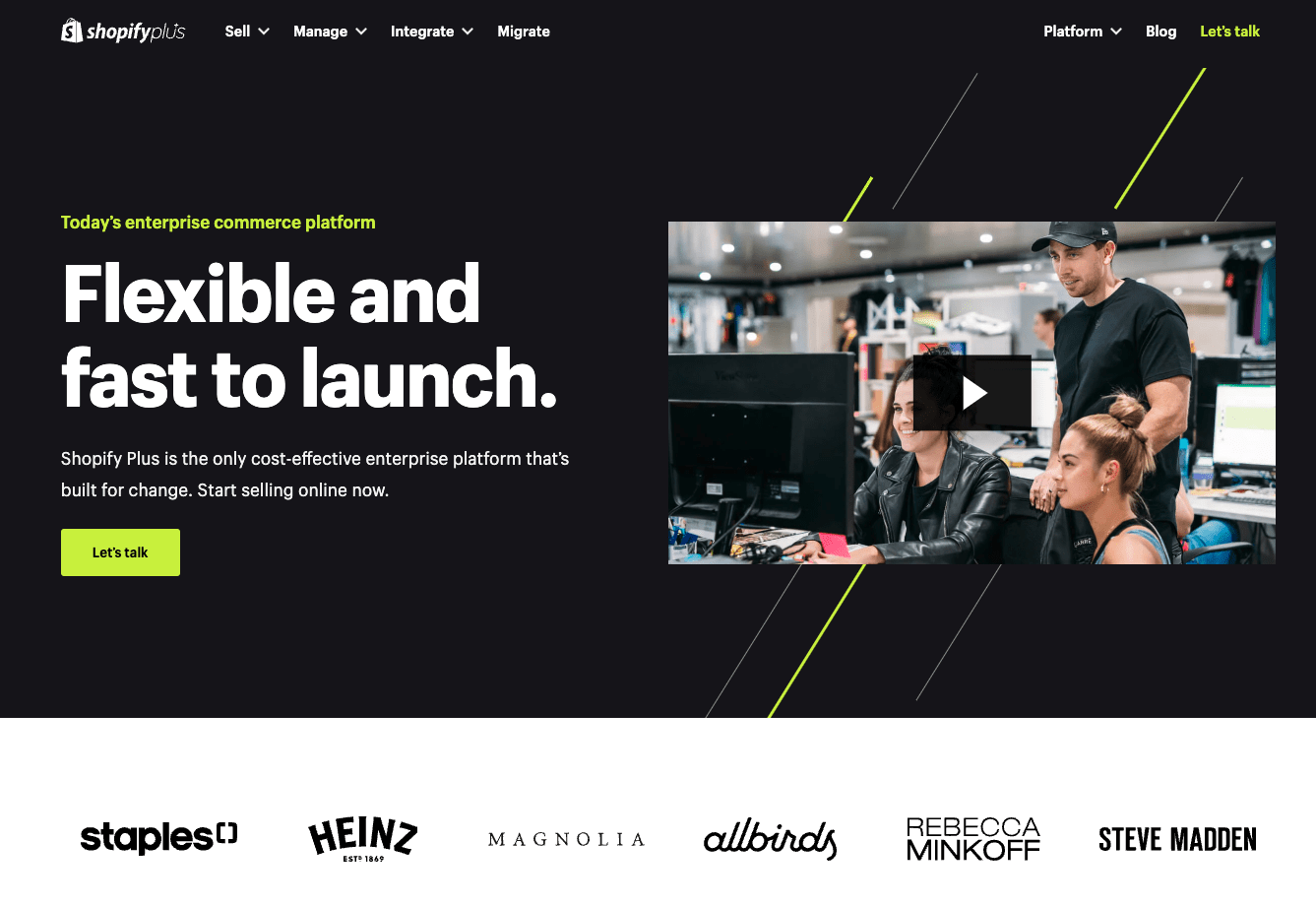
Shopify Plus is a SaaS-enabled enterprise ecommerce platform used by 10,000+ enterprise businesses worldwide.
Key features:
- POS system to unify your business across channels
- Multi-store functionality
- Integrates with popular ecommerce tools and plugins
- Headless compatible
Pricing: Custom for enterprise
Example: Steve Madden
Iconic shoe brand Steve Madden’s Shopify Plus site is brimming with vibrant, statement visuals—appealing to nostalgia lovers and trendsetters alike. The brand’s Shopify Plus store offers inspiration on every page and clear ways to shop favorites, like bold buttons, product category grids, and discount details.
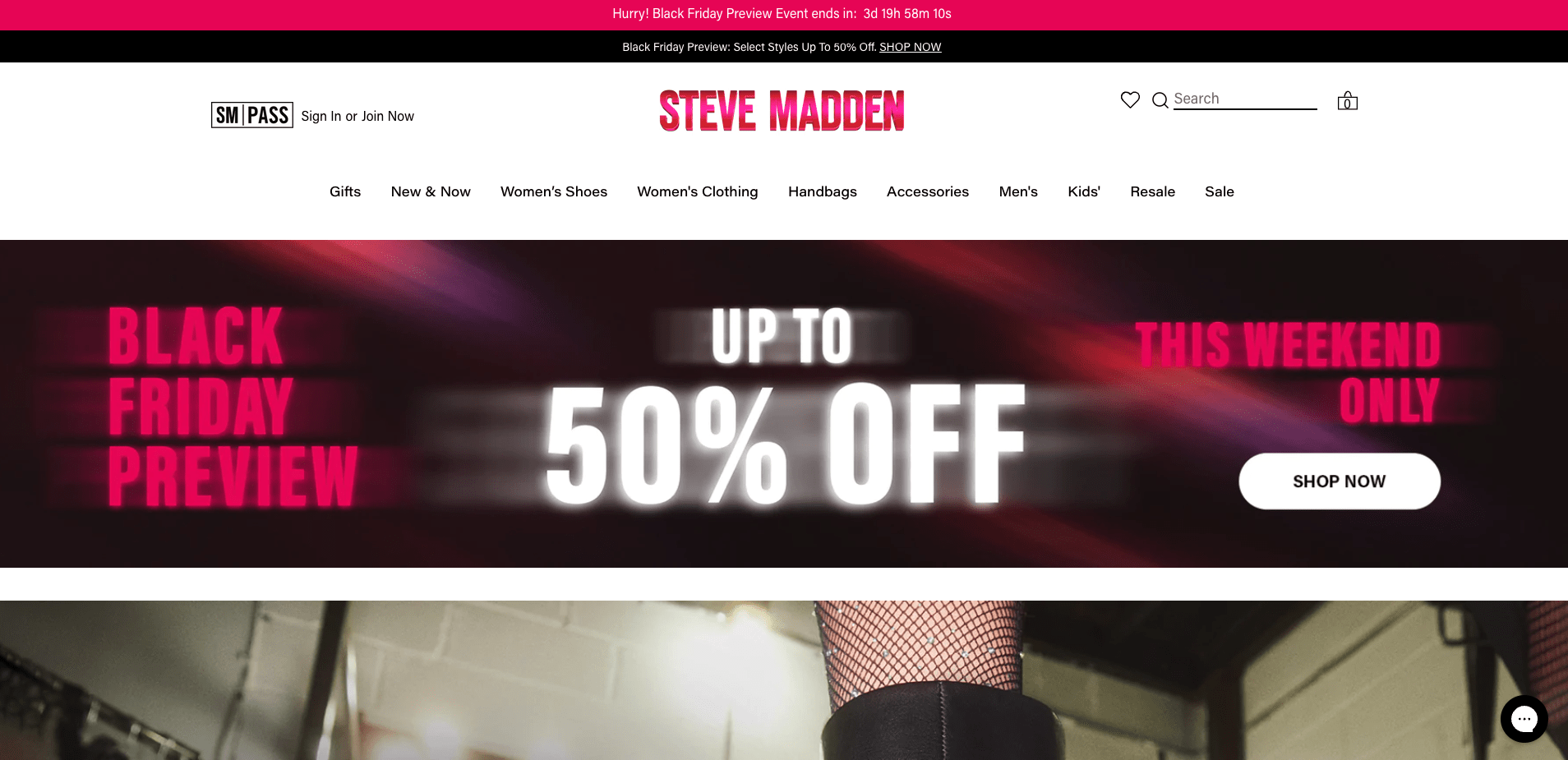

Build your brand’s future with an enterprise ecommerce platform
For brands ready to take the next step with their ecommerce experiences, investing in the right software systems is critical.
Choose a platform that not only accommodates your business needs now but will surely take your brand to new heights in the future as you keep growing.
#cta-visual-fe#<cta-title>Looking for an ecommerce platform that can scale with you?<cta-title>Shogun Frontend offers a radically different approach to headless commerce with an all-in-one Frontend Platform. Learn more

Kaitlyn Ambrose
Kaitlyn works on all things content at Shogun. ⚡



